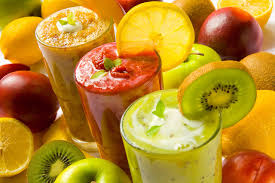The demand for healthy food is growing in Zimbabwe. We have been seeing the steady rise of Zimbabwean health food startups e.g. Yanaya, Glytime Foods, Hutano Foods, and several others. This is because people are increasingly becoming health-conscious about what they eat or drink. That is why today I am taking a look at juices and smoothies; you can make a business out of that in Zimbabwe. Juice here refers to that liquid made from or extracted from a plant, especially fruits or vegetables. A smoothie is a drink made from whole fruit, thus thicker than fruit juice. This line of business is highly recommended because it has much lower overhead costs compared to other food businesses.
Approaches
The game plan here is to come up with a business that sells juices and smoothies. You can choose for it to be a mobile unit (e.g. a truck or cart) or it can be a fixed space, room, or building. I remember when Yanaya started they would use rented spaces where they would set up glass booths. That can be a great approach because that can be set up anywhere. Essentially you can start what will be the equivalent of a bar; only that it will be a juices and smoothies bar. It is important to mention that in this type of business you will be selling freshly squeezed juices or freshly made smoothies. You can consider not just selling juices and smoothies alone. It can widen your revenue base if you also include other food items – I recommend this.
Key Requirements
Registration as always is mandatory, especially for food businesses. You must adhere to all licensing and regulatory obligations. As always you must establish an online presence via a website and social media accounts. There is a wide range of equipment you will need. We are looking at equipment for cold storage e.g. fridges, freezers, cold rooms, and the like – it depends on your scale. Adequate water supply is a must as this line of business will require lots of on-the-go cleaning. You will need juicers, blenders, ice machines, knives, peelers, cutting boards, packaging, cups, disposable bottles (for serving), straws, and so on. If your intended scale of production is significant you will require commercial-grade equipment. Otherwise, if you are small scale you might make do with just home grade equipment. Some substantial capital injection will be needed to start this type of business.
Important Considerations
At the very least your products can just be straight pure i.e. without any add-ons. Including add-ons can be a good idea though, of course, you will have to do market research. At the end of the day, your unique selling point is being a health food or health-conscious juices and smoothies bar. You must not ruin that by using unhealthy add-ons in your products or menus. Still, on add-ons, be sure to consider that some people have allergies and intolerances. You must dutifully account for that by telling people upfront about the add-ons you include. That way, customers can tell you to exclude what they do not want. Never make assume that for example, everyone is okay with dairy add-ons.
You must also be particular about who supplies your fruits and vegetables. I would advise you to source your stuff from producers or suppliers who sell organic certified products. Remember I highlighted that juices and smoothies are mainly sought after for wellness or health-consciousness. Using organic certified fruits and vegetables aligns with that and even boosts your brand image.
All-round cleanliness and aesthetic premises are non-negotiable for this line of business. A perfect example of this is Yanaya outlets; just check them out and you will see what I mean. There is a lengthy discussion I could have started on the shelf lives of juices and smoothies. However, I will just advise you to do thorough homework on this. Their shelf lives are generally short; they vary depending on e.g. preparation method and storage method.
I am a big fan of juices and smoothies. I would love to see juices and smoothies bars becoming a common sight in Zimbabwe. Yanaya provides such products but they are not yet all over Zimbabwe. This simply means there is room for new players to enter the space. There is still infinite untapped potential in a line of business in Zimbabwe.









Brilliant idea